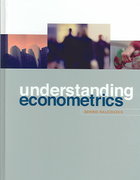Question
The following is an article published in the Financial Times Alphaville section by Rui Soares, an investment analyst and member of the investment team at
The following is an article published in theFinancial Times Alphavillesection by Rui Soares, an investment analyst and member of the investment team at FAM Frankfurt Asset Management - a firm that specialises in high-yield bonds and options-based long-only equity strategies. The views expressed here are his personal opinions and do not necessarily reflect the views of FAM.
You say high inflation, I say show me the currency devaluation
Here's a starter for 10. What links the historical periods below?
Venezuela 2017-2020. Zimbabwe 2018-2020 and 2006-2008. Turkey 1994-1995 and 1980. Argentina, Brazil and Latin America in the 1980s. Germany 1923-1924.
Any ideas?
If you guessed they all suffered annual inflation rates above 100 per cent you'd be correct.
There is, however, something else that's common to this group of countries that tends to get overlooked in the ongoing debate about whether inflation will return to the world's developed economies. In the three years preceding the 100 per cent plus inflation rates, all the countries saw their currencies devalue by at least 80 per cent against the dollar. (To rephrase: one dollar was worth at least five times more post-devaluation.)
Why is this important?
For inflation to significantly pick up it's not only necessary that aggressive expansionary policies pursued by both central banks and governments lead to aggregate demand exceeding available local production capacity. It's also important that excessive domestic demand cannot be met by additional imports at stable prices (measured in the domestic currency). Only then will it trigger inflationary pressures. And, of course, that'll only become the case if the local currency devalues significantly.
So if you're arguing that coronavirus-fighting expansionary monetary and fiscal policy will unavoidably lead to high inflation, you're also assuming that there'll be synchronised currency devaluation across developed nations. And, as a reminder, the currencies we're discussing are the US Dollar, the Euro, the Yen, Sterling and the Swiss Franc. To name a few.
Let's run through this list. The dollar is king for a reason: it accounts for 60 per cent of the world's currency reserves. The Euro is second fiddle to the greenback, accounting for 20% of the world's currency reserves (and the eurozone runs a current account surplus). The Yen is third, accounting for 6% of global reserves and Japan's been running a current account surplus since 1981. To cut a long story short: whether on economic fundamentals or the world's international trade and financial architecture perspective, to assume the world's most systemic currencies will devalue significantly is, at best, heroic.
More importantly, if expansionary policies are the trigger for massive currency devaluations, which currencies are they going to devalue against if all developed countries are doing the same thing at the same time? (Sterling could be an exception given lingering Brexit risks and the current account deficit, but that's a story for another day.)
To boot, as a result of the ultra-low interest rate environment and high debt levels, not only have financial markets been flooded by high duration bonds but we're are living in high duration economies where small increases in interest rates could lead to major financial market turmoil and economic slowdowns. How can inflation rise in any significant and sustainable way in such an economic environment?
If you think central banks would let inflation get out of control, you also have to assume they would be incapable, and unwilling, to raise interest rates by minor amounts. That seems like a bad bet: as long as their mandates are not changed, they should be willing to raise rates if inflation begins to edge up.
Please note that I'm aware the current debate is not about the possibility that annual inflation rates reach 100 per cent over the coming years, but rather the measurement rising to the mid-to-high single digits. However, the link between currency devaluations and inflation still applies: without significant currency devaluation, there'll be no return of significant inflation.
I'm open to changing my views. But you'll have to give me three historic episodes of high inflation without significant currency devaluations preceding them. Actually to start, you can start by giving me one.
Until then, history speaks for itself.
1. Argentina and Turkey have experienced inflation after significant currency depreciations. The UK and Australia have been through depreciations in recent years without any significant impact on inflation. Identify and explaintwoplausible reasons why depreciations may be more inflationary in some countries than in others.
Step by Step Solution
There are 3 Steps involved in it
Step: 1

Get Instant Access to Expert-Tailored Solutions
See step-by-step solutions with expert insights and AI powered tools for academic success
Step: 2

Step: 3

Ace Your Homework with AI
Get the answers you need in no time with our AI-driven, step-by-step assistance
Get Started


